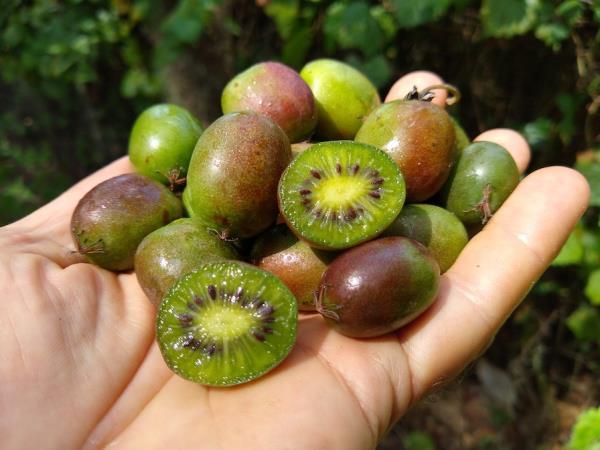Green light for New Zealand kiwifruit berries in China
New Zealand
Friday 05 July 2024
VU
During the packing process, kiwifruit berries destined for China must undergo inspection, sorting and removal of damaged fruit to ensure that shipments are free of insects, rotten fruit, twigs, leaves, roots and soil. Contaminated shipments will be rejected and could lead to the suspension of imports from the orchard or packing house involved (photo: delish.com).
The General Administration of Customs of China (GACC) has announced that New Zealand kiwifruit berries that meet phytosanitary requirements may be imported into China.
Originating in China, kiwifruit berries and kiwifruit are taxonomically related, both belonging to the genus Actinidia. The main difference lies in the size and texture of the skin: kiwifruit berries are smaller, like a grape or a large cherry, and have a smooth green, pink or violet skin. Their taste is sweet with tropical notes.
Since 2010, New Zealand has exported fresh kiwifruit to China under the general category of kiwifruit. However, in March 2016, these imports were suspended because they were not on the official list of permitted fruits. In 2023, France was the first country allowed to export fresh kiwifruit to China, and now New Zealand has become the second. Unlike French kiwis, New Zealand kiwifruit berries do not require cold treatment and can enter directly after quarantine.
The production of kiwifruit berries in New Zealand runs from mid-February to the end of March. These fruits have a thin skin and ripen quickly, so they are not suitable for long-term storage. They can be stored for up to two months at zero degrees Celsius, but at room temperature their shelf life is only 10 days.
According to the GACC, orchards wishing to export kiwifruit berries to China must establish a traceability system and adhere to good agricultural practices and integrated pest management. China has identified eight quarantine pests associated with New Zealand kiwifruit, including leafrollers, light brown apple moth, long-tailed mealybug, yellow mealybug and the fungus Neofabraea actinidiae.
During the packing process, kiwifruit berries destined for China must undergo inspection, sorting and removal of damaged fruit to ensure that shipments are free of insects, rotten fruit, twigs, leaves, roots and soil. Contaminated shipments will be rejected and could lead to suspension of imports from the orchard or packing house involved.
fuente: simfruit.cl





